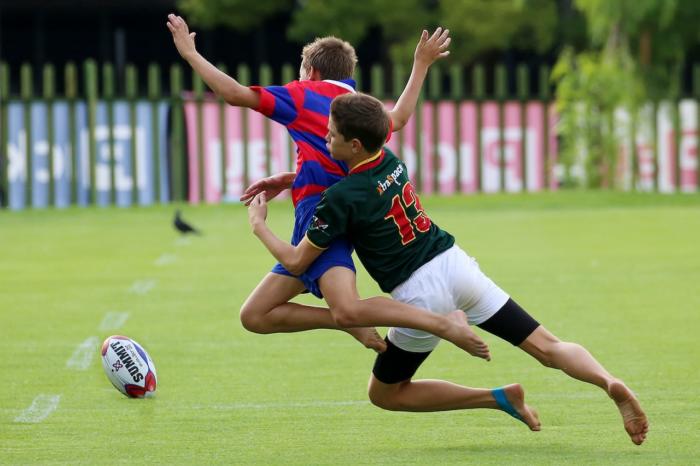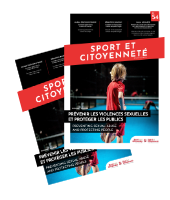Changing professional perceptions and practices
By Alice Buensoz, Head of Studies, Think tank Sport and Citizenship

In 2021, nearly 150,000 young people were being followed by juvenile legal protection services (PJJ) in the context of educational measures or investigations. This responsibility for the education of these young people in conflict with the law aims to help them to change personally, socially and professionally. This was the context for the development of the “Impact PJJ” project, run by the Colosse aux pieds d’argile association, the French Rugby Federation and the Sport and Citizenship Think Tank. The objective: to use rugby as a strategy to turn things around, by creating a relationship of trust and making young people in conflict with the law more aware of bullying, harassment and sexual abuse. Charged with analysing the effects of projects on beneficiaries, Sport and Citizenship proposed a hybrid approach combining quantitative and qualitative measures.
The objective of the analysis carried out by Sport and Citizenship was to show how the scheme devised by Colosse sux Pieds d’Argile was received by the people affected by it, i.e. the young people taken in charge by the PJJ and the professionals involved in educating them.
The first stage looked at the young people. After the awareness-raising through rugby, the participants were asked to fill in a questionnaire about their perceptions of bullying, harassment and sexual abuse, to get their immediate reactions. About twenty of the young people responded positively to this exercise.
The second stage concerned PJJ staff who had followed the training course. They were sent a questionnaire, ten days after the session, to try to find out their interest in being trained in this subject and whether they had changed any of their practices. 18 members of staff replied.
“Attaching more importance to listening”
Concerning the format, one observation held our attention. This concerned access to the young people. Because of their situation, it was impossible to have direct contact with them, so we decided to transmit the questionnaire in paper form at the end of the sessions. In spite of this, the handover caused some difficulties (only 22% responded).
Concerning the content, an analysis of the responses revealed that 80% of the young people had already heard about abuse and bullying. All of them were aware of the gravity of these acts. The chosen form of teaching was popular with the young people: 75% of them thought that playing rugby before the session gave them more confidence in talking about the subject. That was also shown by their relaxed manner during the day: they all said they felt “at ease” or “very much at ease”. 80% of the young people said they now know who to turn to if they know about this behaviour. Apparently, the chosen format is well-adapted to the targeted group.
As for the PJJ staff, all of them claimed to be interested in the subject for their working practices. “This is a subject that seems at first to be a private matter, but in view of the number of victims and perpetrators, it concerns the whole of society and should be part of teaching about emotional and sexual behaviour from a young age.” The professionals said they had learnt several things from this training course, as much about aspects of the instructors’ stance towards the minors as about theoretical aspects for constructing public policies for prevention. A lot of the staff said they wanted to modify the way they work, by attaching more importance to listening to what the young people have to say, and by sensitising and training their teams.
 Read the Journal 54 :
Read the Journal 54 :
PREVENTING SEXUAL ABUSE AND PROTECTING PEOPLE










 MEMBERSHIP
MEMBERSHIP CONTACT
CONTACT FACEBOOK
FACEBOOK